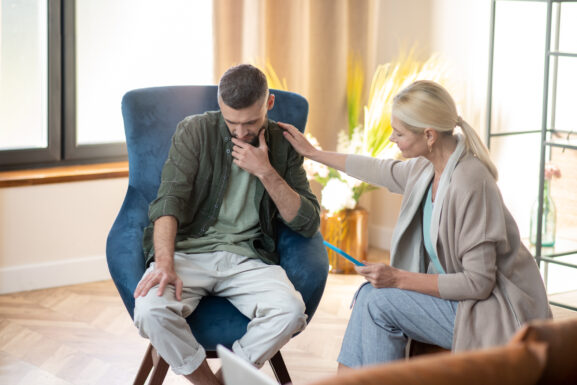Drug Recovery Programs in Your Area: A Roadmap to Sobriety
Drug Recovery Programs in Your Area: A Roadmap to Sobriety
Introduction
Addiction can be an incredibly tough battle to fight alone, and finding the right "drug recovery programs near me" can be the first step towards reclaiming your life. In this article, we'll delve into various drug recovery programs available in your area, explaining their key features, benefits, and what you can expect. We'll also answer some frequently asked questions to help you make an informed decision about starting your journey to sobriety.
Understanding Drug Recovery Programs
Drug recovery programs are specialized treatments designed to help individuals overcome substance use and addiction. These programs combine medical treatment, therapy, and supportive services to help patients achieve long-term sobriety.
Types of Drug Recovery Programs
- Inpatient Treatment
Inpatient treatment, also known as residential treatment, requires patients to stay at a facility for a set period. These programs provide 24/7 medical and emotional support, making them ideal for those with severe addictions. - Outpatient Treatment
Outpatient programs allow patients to live at home while receiving treatment. This option is suitable for individuals with moderate addictions who have a supportive home environment. - 12-Step Programs
Programs like Alcoholics Anonymous (AA) and Narcotics Anonymous (NA) provide a structured, step-by-step approach to addiction recovery through peer support and sponsorship.
- Non-12-Step Programs
These include alternatives like SMART Recovery, which focuses on self-empowerment and motivational techniques. - Medication-Assisted Treatment (MAT)
MAT combines FDA-approved medications with counseling and behavioral therapies. It's often used to treat opioid and alcohol addictions.
Key Components of Drug Recovery Programs
- Assessment and Intake
Upon entering a program, an initial assessment helps set up a personalized treatment plan. - Detoxification
Medical detoxification safely manages withdrawal symptoms. - Therapy and Counseling
Multiple forms of therapy, including cognitive-behavioral therapy (CBT) and dialectical behavior therapy (DBT), address the psychological aspects of addiction.
- Aftercare Planning
Aftercare plans involve ongoing support through follow-up appointments, group therapy, and sometimes sober living homes.
Searching for "Drug Recovery Programs Near Me"
When searching for "drug recovery programs near me," consider the following factors:
Accreditation and Licensing
Ensure the program is accredited by reputable organizations like the Joint Commission or CARF (Commission on Accreditation of Rehabilitation Facilities).
Treatment Approaches
Look for programs that offer a comprehensive approach tailored to your specific needs, including a combination of medical treatment and therapy.
Success Rates
Ask about success rates and if they can provide testimonials or case studies.
Family Involvement
Programs that involve family in the recovery process can offer additional layers of support and accountability.
Real-Life Success Stories
Case Study: John's Journey to Sobriety
John, a 35-year-old engineer, struggled with addiction for over five years. After several failed attempts at self-rehabilitation, he searched for "drug recovery programs near me" and found a highly rated residential treatment center. After completing a 90-day inpatient program and engaging in aftercare support, John has been sober for three years and is an advocate for addiction recovery.
FAQs
- What is the duration of most drug recovery programs?
The duration varies; inpatient programs typically last 30-90 days, while outpatient programs can last several months to over a year. - Do I need a referral from a healthcare provider to enroll in a program?
While not always necessary, a referral can provide a more personalized and effective treatment plan. - Will my insurance cover drug recovery programs?
Many insurance plans cover various aspects of addiction treatment. It's best to check with your provider.
- What should I bring to an inpatient facility?
Most facilities provide a list of items to bring, which often includes personal hygiene products, comfortable clothing, and any necessary medications. - Can I work while undergoing outpatient treatment?
Yes, outpatient treatment is designed to allow individuals to maintain their daily responsibilities, including work. - What role does nutrition play in recovery?
Proper nutrition helps in physical and mental recovery, often improving energy levels and emotional stability.
- Are there drug recovery programs specifically for teens?
Yes, many facilities offer specialized programs for adolescents and young adults. - What is dual diagnosis treatment?
Dual diagnosis treatment addresses both addiction and any co-occurring mental health disorders. - Is it possible to switch programs if one isn't a good fit?
Yes, if a program isn’t meeting your needs, consult with a healthcare provider to find a more suitable option.
- How do I prepare myself mentally before starting a program?
Educate yourself about the process, set personal goals, and build a support system of friends and family.
Conclusion
Finding the right "drug recovery programs near me" is a pivotal step towards achieving a sober and fulfilling life. By understanding the different types of programs available and what to look for in a treatment facility, you can make an informed decision that aligns with your specific needs. Remember, seeking help is a sign of strength, and there are numerous resources and professionals ready to assist you on your journey to sobriety.
Reputable Medical Sources
- National Institute on Drug Abuse (NIDA)
- Substance Abuse and Mental Health Services Administration (SAMHSA)
- Mayo Clinic
Disclaimer: The information on this site is intended for general informational purposes only and is not a substitute for professional medical advice, diagnosis, or treatment. Medical knowledge is continuously evolving, so the content here may not always be current, complete, or comprehensive. Always consult your healthcare provider before starting or altering any treatment. In the event of a medical emergency, contact your doctor or dial 911 right away.



